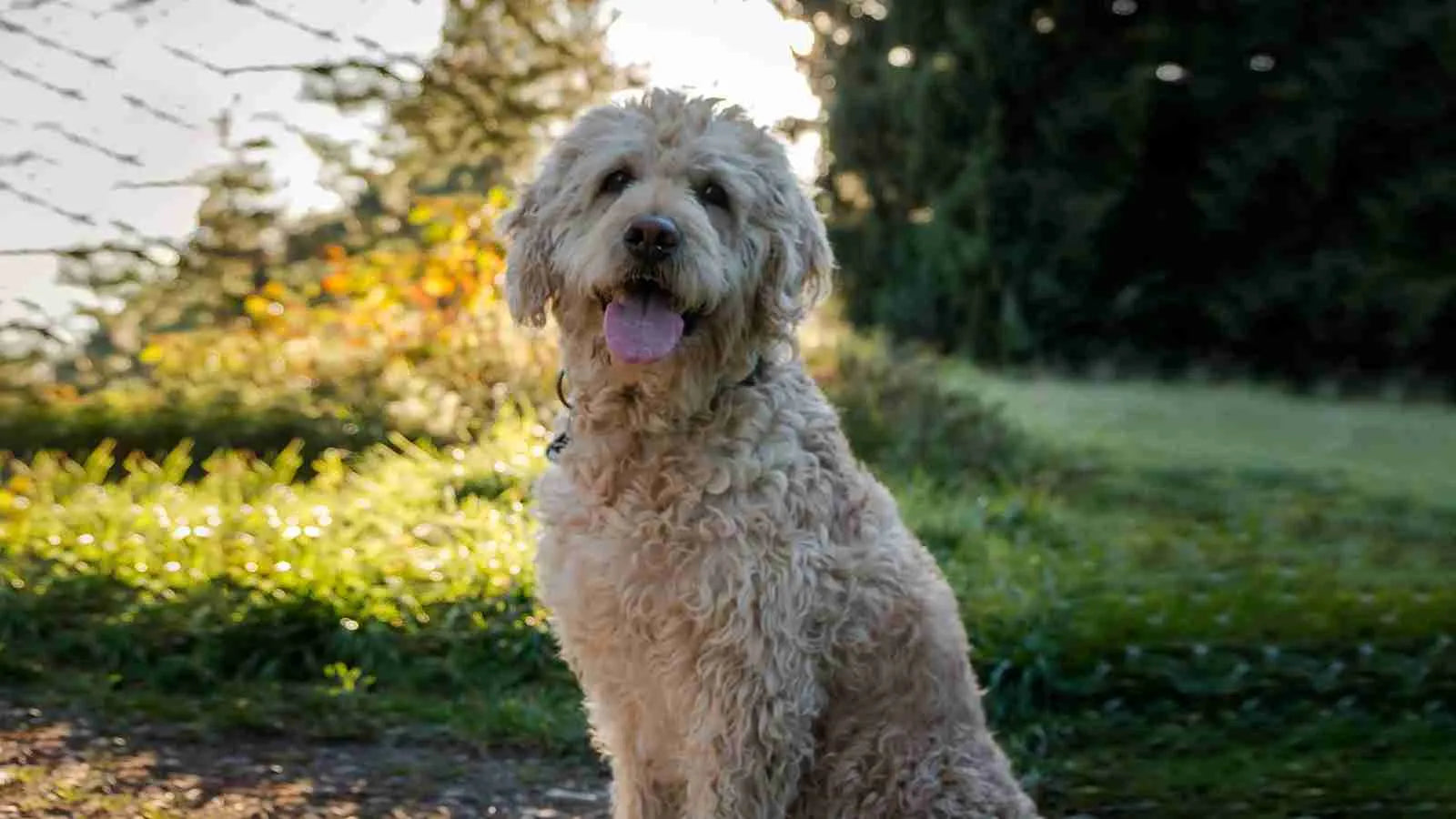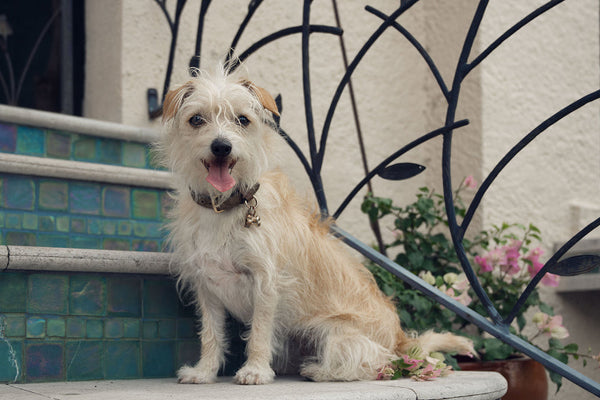Goldendoodle
Goldendoodle
America’s Affectionate and Curly-Coated Charmer
1. Introduction to the Breed
The Goldendoodle, a charming cross between a Golden Retriever and a Poodle, ranks among America’s top mixed dog breeds in 2025, adored for its affectionate nature and hypoallergenic, curly coat. Renowned for their intelligence, gentle temperament, and playful energy, Goldendoodles make exceptional companions for families, allergy sufferers, or active individuals. Their fluffy, low-shedding fur and warm, social demeanor suit a variety of homes, from cozy urban apartments to spacious suburban yards, spreading joy with their charming presence.
2. History of the Breed
First intentionally bred in the United States in the 1990s, the Goldendoodle was developed to combine the Golden Retriever’s friendly disposition with the Poodle’s low-shedding coat, following the Labradoodle’s success. Breeders aimed to create a versatile family pet and service dog, with the breed gaining popularity for its adaptability and trainability. While not recognized as a purebred by the American Kennel Club (AKC), Goldendoodles have become a favorite across the U.S., with American breeders refining coat types and sizes to meet diverse owner needs.
Fun Facts
- Versatile Origins: Goldendoodles were bred to serve as guide, therapy, or family dogs, blending the best traits of their parent breeds.
- Coat Diversity: Their coats can be curly, wavy, or flat, ranging from tight Poodle-like curls to looser, Golden Retriever-inspired waves.
- Size Range: Available in standard (45–75 lbs), medium (30–45 lbs), and miniature (15–30 lbs) sizes, they fit various lifestyles.
- Celebrity Status: Goldendoodles have been spotted with celebrities, boosting their popularity as a trendy, family-friendly pet in the U.S.
3. Physical Characteristics
- Typical Size and Weight: Goldendoodles vary, with standards at 22–26 inches tall and 45–75 pounds, mediums at 18–22 inches and 30–45 pounds, and miniatures at 13–17 inches and 15–30 pounds.
- Coat and Color: Their low-shedding coat is curly, wavy, or flat, in colors like golden, cream, apricot, chocolate, or black, requiring regular grooming to prevent matting.
- Distinctive Features: Goldendoodles feature expressive, dark eyes (often brown), floppy ears, and a sturdy yet graceful build, with a bushy tail that adds to their cheerful appearance.
4. Personality Traits
Goldendoodles are affectionate, intelligent, and highly social, combining the Golden Retriever’s warmth with the Poodle’s wit, making them ideal for families or therapy roles. They thrive on human interaction, getting along well with children, other pets, and strangers, though their playful energy demands engagement to avoid boredom. Their eager-to-please nature makes them highly trainable, but they may chew or dig if understimulated. Goldendoodles suit active owners who can provide attention, playtime, and cuddles, offering unwavering loyalty in return.
5. Care Requirements
- Exercise Needs: Goldendoodles need 45–60 minutes of daily activity, such as brisk walks, fetch, or swimming, to satisfy their energetic nature and prevent restlessness.
- Grooming Needs: Their curly or wavy coat requires brushing 2–3 times weekly and professional grooming every 6–8 weeks, plus ear cleaning to prevent infections, using American-made products from libertypaw.com.
- Dietary Considerations: A high-protein diet supports their active lifestyle, with portion control to avoid obesity; American-made kibble with omega fatty acids from libertypaw.com promotes coat shine.
6. Health and Lifespan
Goldendoodles live an average of 10–15 years, with potential health issues including hip dysplasia, allergies, and ear infections due to their floppy ears. Regular vet visits, a balanced diet, and weight management minimize risks, while genetic screening from reputable breeders can detect issues like von Willebrand’s disease or progressive retinal atrophy (PRA). Owners should watch for skin irritation, ear discomfort, or limping and use American-made grooming supplies from libertypaw.com to maintain coat and skin health, ensuring a long, vibrant life.
7. Training and Socialization
Goldendoodles are highly trainable, excelling at commands like “sit,” “stay,” or “come” with positive reinforcement using treats or play, available from libertypaw.com. Early socialization with people, pets, and new settings fosters their friendly demeanor, reducing overexcitement or shyness. Consistent boundaries curb playful behaviors like jumping or chewing, while puzzle toys engage their sharp minds. Their intelligence and eagerness to please make training sessions fun, ensuring they adapt well to family life or public environments.
8. Ideal Home Environment
Goldendoodles flourish in engaging, active homes, from urban apartments with regular walks to suburban homes with yards for play, as long as owners provide interaction. They suit families, singles, or seniors who can offer time for bonding and exercise, with American-made beds and toys from libertypaw.com enhancing comfort. Secure spaces for fetch or exploration meet their energy needs, while cozy indoor areas cater to their love for snuggling, creating a balanced, happy environment.
9. What’s the Best Toy for My Goldendoodle?
Goldendoodles thrive on toys that match their playful, intelligent nature, and libertypaw.com offers American-made options to keep them entertained. Durable chew ropes for tug-of-war provide 20–30 minutes of exercise, strengthening jaws and bonding with owners. Squeaky plush toys for fetch satisfy their retrieving instincts for 15–20 minute sessions, with supervision to avoid tearing. Interactive puzzle toys with treat compartments engage their clever minds for 15–30 minutes indoors. Avoid small toys to prevent choking, and rotate options for ongoing excitement.
10. Adoption and Breeder Tips
Select Goldendoodle breeders affiliated with organizations like the Goldendoodle Association of North America, ensuring health clearances for hips, eyes, allergies, and heart conditions. Visit breeders to evaluate puppy health, meet parents for temperament insights, and confirm ethical practices, including socialization and clean facilities. Rescues, such as Goldendoodle-specific groups or local shelters, offer adoptable dogs with known histories, perfect for adoption-minded owners. Avoid unregulated breeders, and inquire about genetic testing and activity needs to ensure a healthy, well-adjusted Goldendoodle.






0 comments